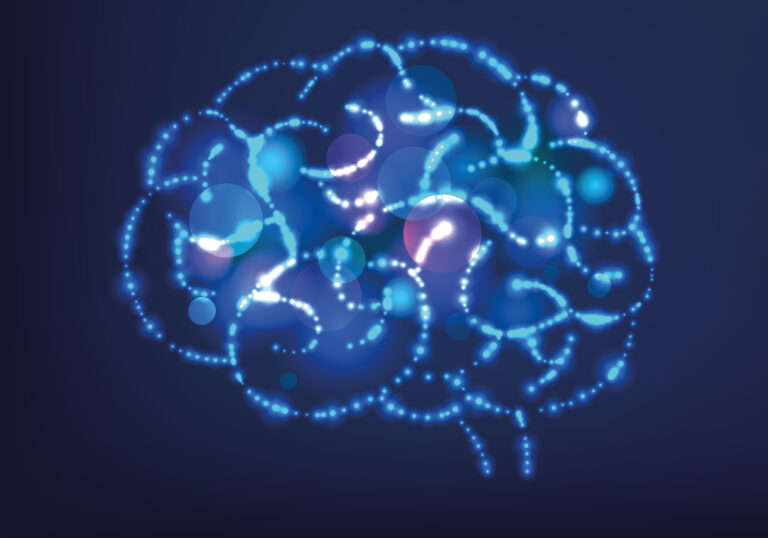
Ask a Doc: Mental Health

Mental health plays a major role in people’s ability to maintain good physical health. In this week’s “Ask a Doc,” Raymond A. James, D.O. answers questions about mental health. Do you have a question for us? If so, click here to send questions to the Clinic and we will answer them monthly.
What mental illness are older people most likely to develop?
Dementia is the most common mental health concern among the elderly. About 5 million adults aged 65 and older – approximately 10 percent of seniors – have Alzheimer’s disease, according to the Alzheimer’s Association. We all have decreased short term memory as we age, but when it affects our daily life, it may require evaluation and treatment.
Generalized Anxiety Disorder (GAD) is the most common type of anxiety disorder diagnosed in older adults. Understanding what triggers feelings of anxiety and learning ways to cope with the stressors can help, along with counselling. Medications are usually reserved for patients whom counselling and behavioral methods have been unsuccessful.
Situational depression may occur due to losing a loved one. If symptoms of sadness persist or if a person becomes increasing withdrawn, then evaluation for clinical depression and medical treatment due to underlying imbalance of brain chemistry may be needed.
Is Alzheimer’s the same as dementia?
Dementia is a general term for a decline in mental ability severe enough to interfere with daily life. Dementia describes a group of symptoms associated with a decline in memory, reasoning, or other thinking skills. There are many different types of dementia, but Alzheimer’s is a specific disease and is the most common cause of dementia, accounting for 60-80 percent of dementia cases.
Isn’t forgetfulness just a part of aging?
Sure, forgetfulness can be a normal part of aging. As we get older, changes occur in our brain, just as they take place in all parts of our body. Some people may notice that it takes longer to learn new things, they don’t remember information as well as they did, or they lose things like their glasses. That’s very different than dementia, though. Dementia is not a normal part of aging. It’s caused by damage to brain cells that affects their ability to communicate, and that can affect thinking, behavior and feelings.
Sometimes my brain just feels tired. What’s that about?
Mental fatigue – it’s a real thing. There are so many reasons your brain feels tired. Contributing factors can be physical, like poor nutrition, lack of sleep, or hormonal imbalances. Or it could be the result of a physical issue like depression, heart disease, chronic illness, or an autoimmune disease. Or you could just be asking your brain to do too much. Too many decisions, too much work, too many interruptions, too many demands. When this happens, it’s important to take a break, pause and give your brain time to restore.
Any tips to help improve mental wellbeing?
This may not come as a surprise but sitting too much actually drags down your mental health. So, get up and get moving. Physical activity is as good for the mind as it is for the heart and the waistline. Take advantage of our location. We’re fortunate to live where there’s easy access to nature, walking paths and a beautiful beach with red tide now waning.
What are some early warning signs I should be on the lookout for?
That is a tricky question to answer. There’s no easy test to score mental health. People deal with situations in so many different ways, it’s hard to say what might just be typical behavior for one person, or something that’s concerning for another. And the way you’re feeling may be a symptom of a physical illness. But these are some common signs of mental illness in adults (according to the National Alliance on Mental Illness):
- Excessive worrying or fear
- Feeling excessively sad or low
- Confused thinking or problems concentrating and learning
- Extreme mood changes, including uncontrollable “highs” or feelings of euphoria
- Prolonged or strong feelings of irritability or anger
- Avoiding friends and social activities
- Difficulties understanding or relating to other people
- Changes in sleeping habits or feeling tired and low energy
- Changes in eating habits such as increased hunger or lack of appetite
- Changes in sex drive
- Difficulty perceiving reality
- Inability to perceive changes in one’s own feelings, behavior or personality
- Overuse of substances like alcohol or drugs
- Multiple physical ailments without obvious causes
- Thinking about suicide
- Inability to carry out daily activities or handle daily problems and stress
- An intense fear of weight gain or concern with appearance
Your primary care physician is a good starting point for those seeking assistance with their mental health. You can find great information on the website of the National Institute of Mental Health (NIMH), the lead federal agency for research on mental disorders: https://www.nimh.nih.gov/. The Alzheimer’s Association’s website is another place to find information on the disease as well as local resources. Another mental health resource is NAMI (National Alliance on Mental Illness), which has a text or phone number you can call in a crisis. Call 911 if you or someone you know has a life-threatening emergency.
More Recent Healthcare News

Every year we celebrate Doctor’s Day and Nurses Week, but there’s one more recognition event that’s just as important. Administrative Professionals Day is April 24th this year and I want to be sure to bring special attention to three incredibly special members of the Boca Grande Health Clinic family. Jonna Foos, Director of Operations Jonna […]

April, the birth month of James Parkinson, is Parkinson’s Disease Awareness Month. Parkinson’s is a degenerative syndrome that results in the gradual loss of brain circuitry involved in movement, thinking and behavior. According to the National Institutes of Health (NIH), the first clear medical description of Parkinson’s Disease as a neurological condition was written in […]

March 30th marks a special day on our calendar – Doctor’s Day! It’s a time to honor those who dedicate their lives to caring for us. At the Boca Grande Health Clinic, it’s the extraordinary team of board-certified physicians – Dr. Raymond A. James, our Medical Director; Dr. Bret Kueber, the Assistant Medical Director; and […]

Ask a Doc: Kicking Colon Cancer in the Butt
March 22, 2024According to the American Cancer Society, the lifetime risk of developing colorectal cancer is about 1 in 23 for men and 1 in 25 for women. The death rate from colorectal cancer has been dropping in older adults for several decades. Unfortunately, colorectal cancers now rank as the leading cause of cancer death in men […]

